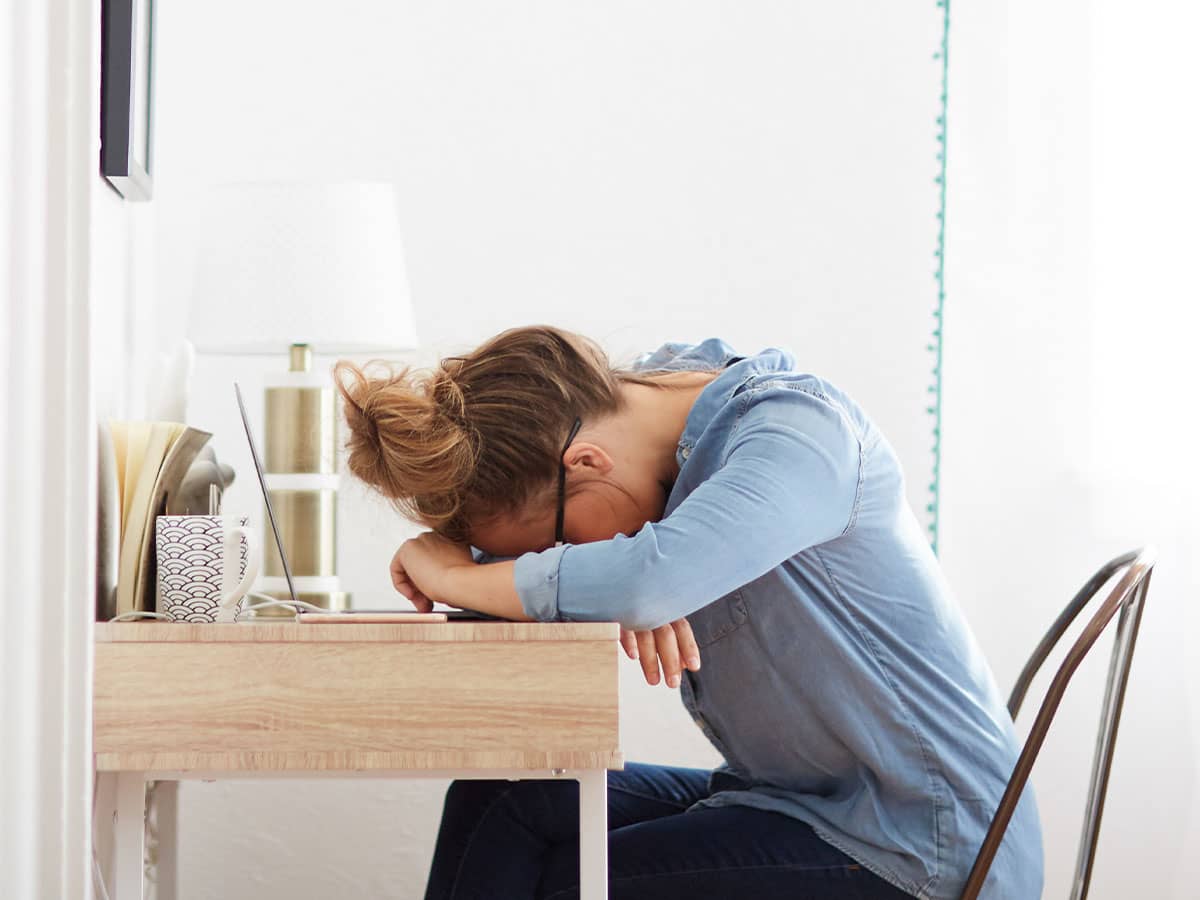
Getting a good night's sleep often feels like pure luck, something out of our control.
The difference between sleeping well and sleeping poorly can have a huge impact on our morning routine and the overall quality of our day, but for the most part we're unaware of how our pre-bedtime behavior can affect the quality of our nighttime slumber.
There are many reasons why you won't sleep tonight, with 10 of the most common being because...
10) There's Too Much Artificial Lighting
Edison has a lot to answer for.
Though the invention of the electric lightbulb was arguably one of the most important historical findings of all time, artificial lighting is detrimental to our sleep, as our bodies haven't been able to adapt to experiencing lightness after the sun's set. As a result, melatonin production is prevented during the evening in the hours that our bodies wouldn't otherwise be exposed to light. We need melatonin to make us feel drowsy and ready to sleep.
Nobody could expect us to go without artificial lighting during the evening, but we can dim our lights and reduce the amount of light coming into our room by replacing our blinds with heavy curtains, or by wearing a comfortable sleep mask.
9) We'll Drink Caffeine in the Evening
The half-life of caffeine is huge (over six hours). If we drink a cup of coffee at 4:00 p.m., half of our cup's high caffeine dosage will still be in our bodies come 10:00 p.m., which can play havoc with our melatonin production.
Tea has about half the caffeine as coffee. While sugary drinks and chocolate don't contain nearly as much, they're generally not recommended during the last couple of hours before bed.
8) We'll Exercise Before Bed
Exercising in the mornings or afternoons is a great ways to keep fit while boosting our energy levels, but taking part in strenuous exercise too late in the day can make it harder for us to fall asleep at night.
When we exercise before bed our body has to try to fight off the excess energy we've just given it, keeping us awake long into the night. This energy would have been perfect earlier in the day, but it's counterproductive just before bed.
7) Our Bedroom's Too Hot
Our core body temperature drops as we sleep, which is why we often wake during the night wanting to grab the covers we've tossed to the end of the bed. What isn't commonly known is our core body temperature rises and falls during the REM (rapid eye movement) stage of a single sleep cycle, meaning if we're sleeping in a hot room we may be woken by the discomfort of our body being warmed up even further.
We should cool our bedroom in the evening, but if you still find it difficult to sleep you may have poor temperature regulation.

6) We'll Go to Bed Late
We tend to have our deepest sleep in the first third of the night, with the length of our deep sleep depending on how early we go to bed.
We go in and out of deep sleep during every 90-minute sleep cycle, but during the first third of the night our chance of experiencing deep, non-REM sleep increases. It's for this reason that sleeping from 10:00 p.m. to 6:00 a.m. often feels more refreshing than sleeping from 1:00 a.m. to 9:00 a.m.
5) We'll Drink Too Much Alcohol
Just because alcohol makes us feel drowsy doesn't mean it's good for our sleep. In fact, after an initial bout of deep sleep, we'll find ourselves waking up frequently throughout the night.
REM sleep reduces with as little as two alcoholic drinks before bedtime, and we are more prone to having (and waking up during) nightmares.
4) It's Too Loud
An obvious point, but an important one to make. If our sleeping environment is too loud, we probably won't sleep tonight.
Dealing with this problem is simple, if not very comfortable. Wearing a good pair of earplugs will instantly enter us into a land of quiet bliss. The side effect of this is many of us find wearing earplugs uncomfortable, but this is something you get used to over time.
3) We'll Nap Too Long During the Day
Deliberate afternoon napping is perfect for helping us get the most out of our afternoon; squashing afternoon fatigue before it even gets going.
But afternoon napping can be harmful to our nighttime sleep when it's taken to extremes. A short 20-minute nap (or a longer 90-minute nap) is recommended, especially at weekends. Anything longer than 90-minutes can be detrimental to our nighttime sleep.
2) We'll Check Our Phone During the Night
Checking our phone during the night is one of the worst things we can do if we want to spend the night in the land of nod.
When we check our phone during the night we shift our circadian clock, once again blocking our melatonin production. Worst still, it allows cortisol and dopamine (the hormones responsible for waking us up in the morning) to release into our system early.
1) We'll Hit the Snooze Button
Hitting the snooze button when we wake up tomorrow morning won't affect our sleep tonight, but it may disturb our wakeup phase enough to make a good night's sleep make us feel groggy upon waking.
Our body naturally prepares itself for the day ahead an hour before it expects us to wake up. Our sleep becomes lighter as cortisol and dopamine release and our body temperature rises. If we snooze our alarm the moment it wakes us we may fall back into deep sleep, making waking on our alarm's second, third, or fourth attempt even more painful.
Instead, we should set our alarm for the minute we need to get up, no earlier. And then we need to stick to it.


